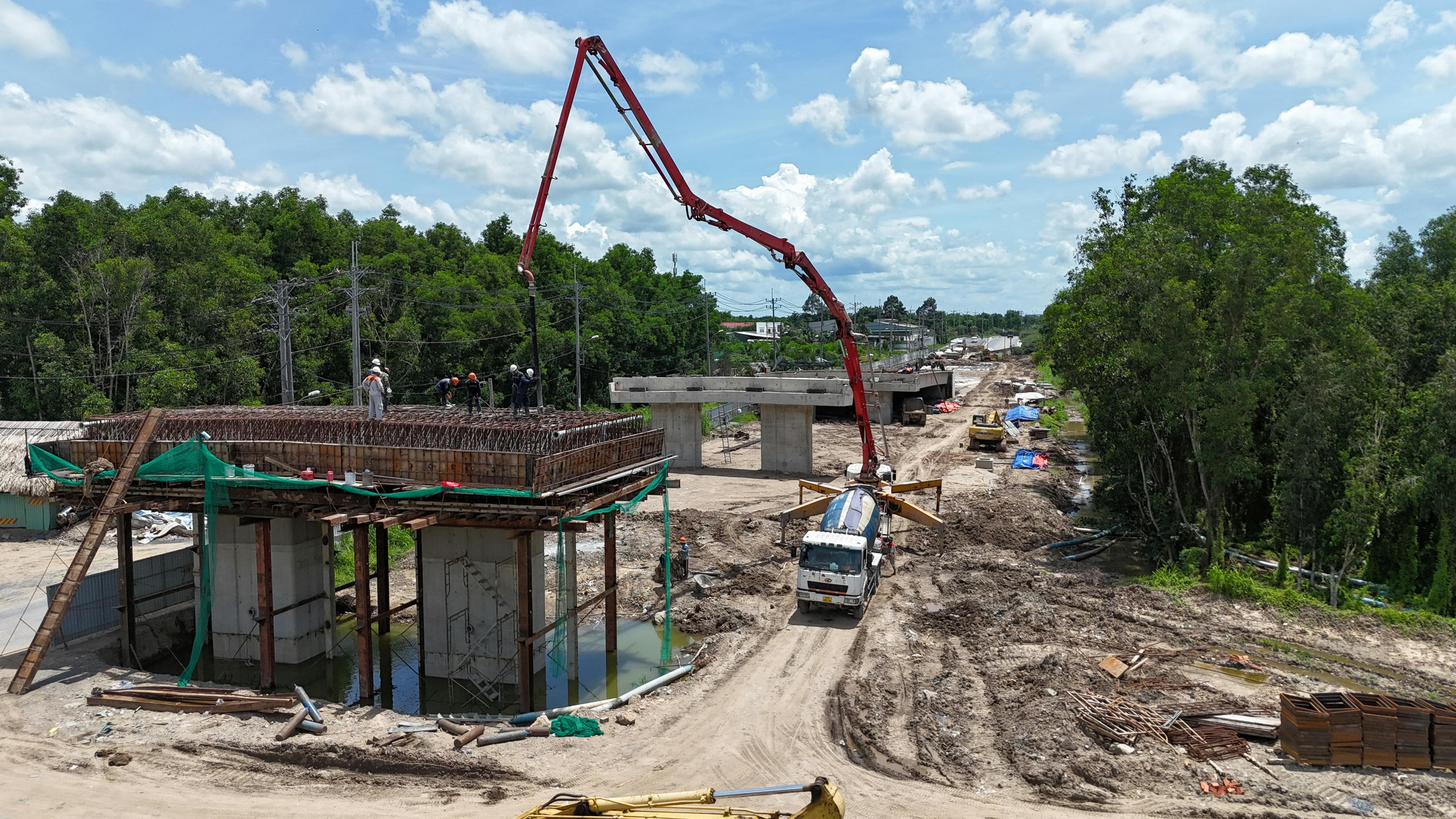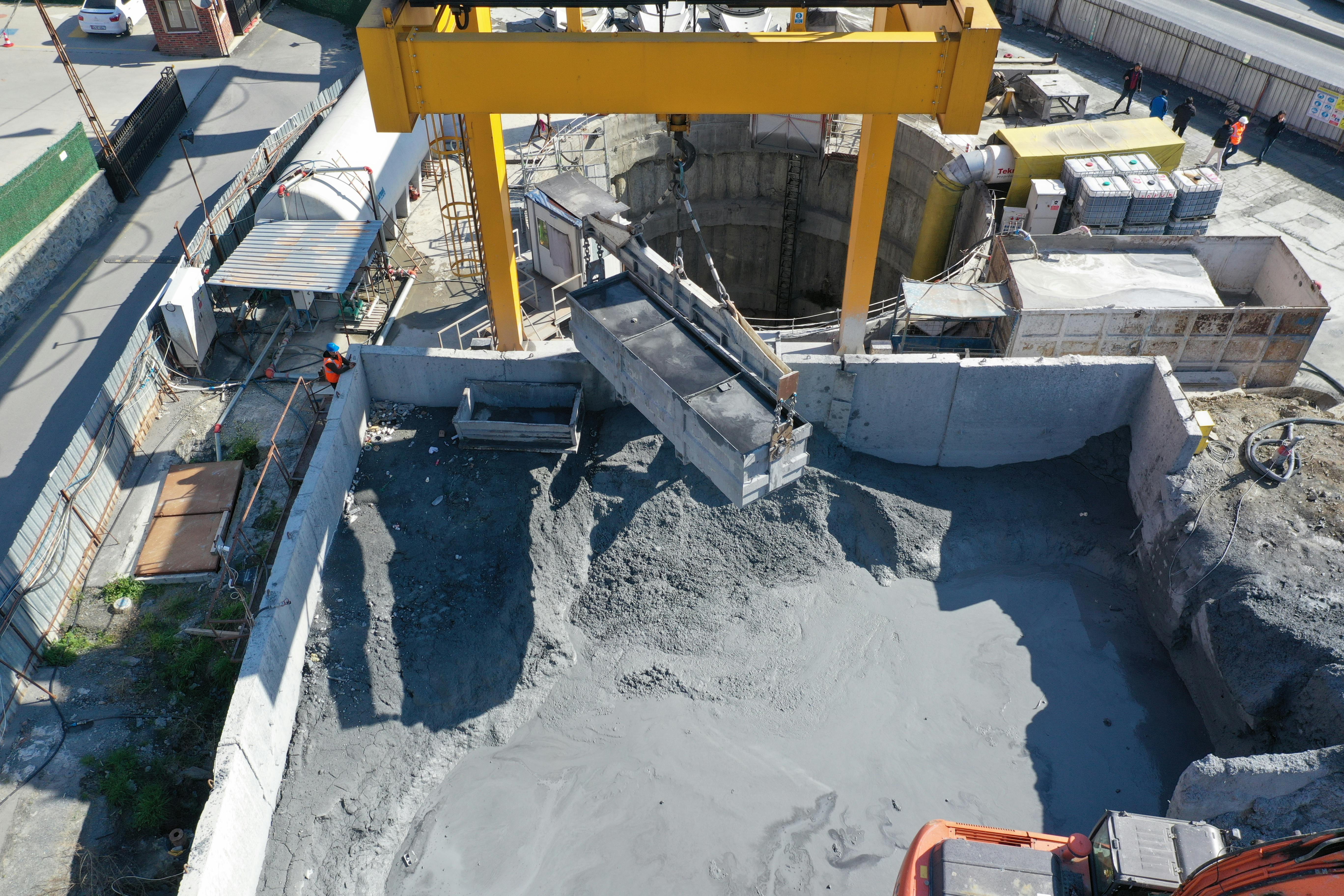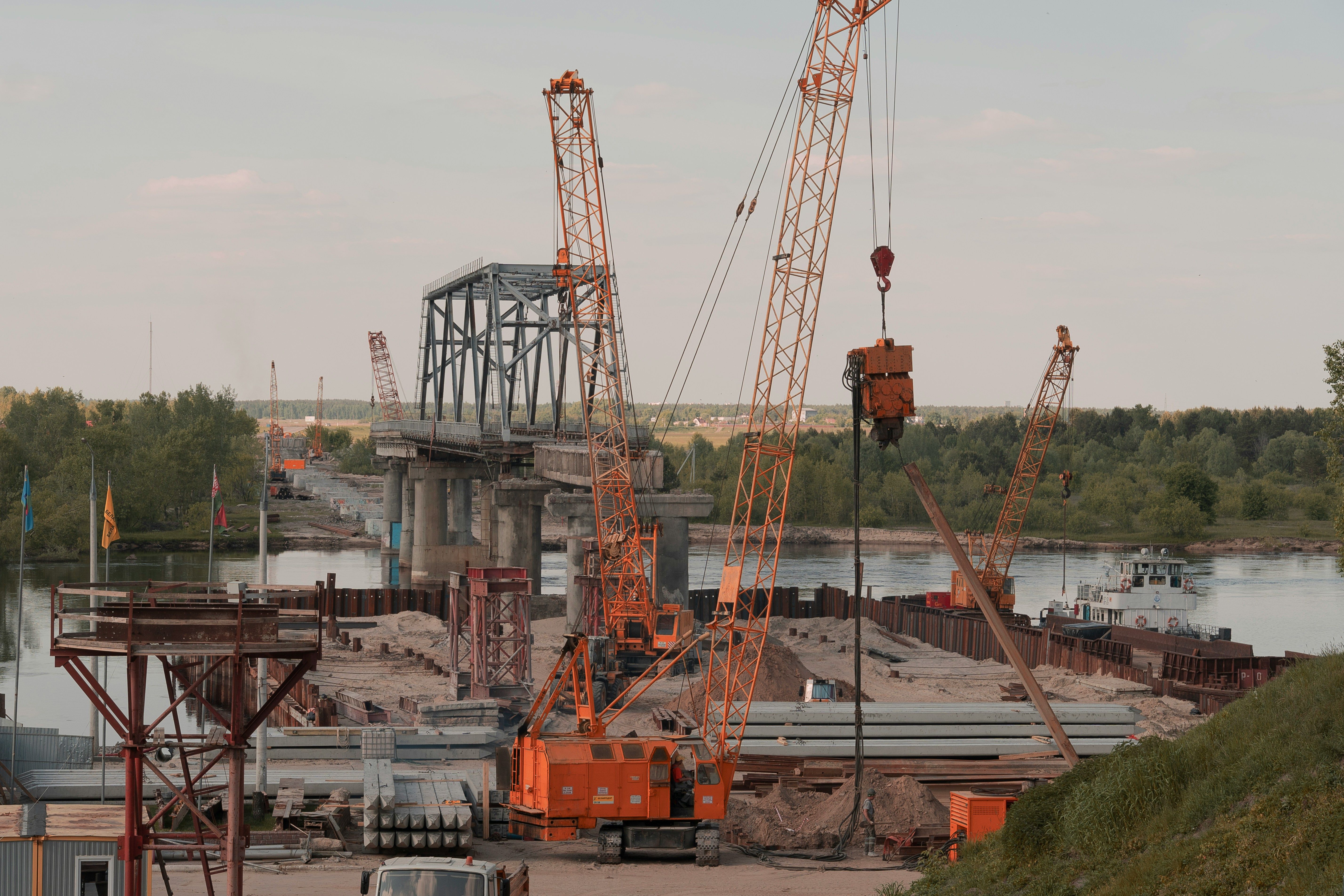What Makes Commercial Concrete Different
At its core, concrete is concrete but the demands placed on commercial installations are significantly heavier than residential settings. Here are some of the challenges and variables:
- Load and traffic: Warehouses, driveways, parking lots, and industrial floors must endure heavy machinery, forklift traffic, vehicles, and sometimes constant foot traffic.
- Weather and environment: Missouri sees varied seasonal conditions—freezing winters, wet springs, hot summers all of which can stress concrete through freeze-thaw cycles, moisture, thermal expansion, etc.
- Scale and precision: Commercial projects often require large slabs, precise level tolerances, structural load bearing foundation work, or integration with drainage, utilities, etc.
- Aesthetic and functionality demands: For commercial properties (offices, shops, showrooms), appearance matters. Decorative concrete, stamped finishes, and clean flatwork can impact first impressions. Also functionality like slip resistance, drainage, etc.
- Durability expectations: A commercial concrete slab or foundation is expected to last decades with minimal major repair. That demands high-quality materials, correct mixing, pouring, curing, and maintenance.
Missoury Concrete specialises in meeting those demands offering full-spectrum services including concrete foundations, slabs & flatwork, parking lots & driveways, industrial flooring & warehouses, concrete repairs & maintenance, and stamped & decorative concrete.
Why Missouri Concrete Stands Out
Based on information from the site, here are what appear to be their strengths and qualities that businesses in Missouri should consider when choosing a concrete contractor.
- Decades of Experience & Local Expertise Missoury Concrete emphasizes “Decades of Concrete Expertise.” Knowing local climate, soil types, state/county permitting and code requirements, means fewer surprises. Local experience also helps with anticipating project delays (weather, local supply chain, etc.).
- Comprehensive Service Offering From foundational work to decorative finishes, and from maintenance to large-scale industrial flooring, they cover many use cases. This means a client can use one contractor for most concrete needs, which helps with continuity, accountability, and often cost savings.
- Timeliness & Reliability On-time delivery, project timelines, following through on schedule these are emphasized. They recognize in commercial work that schedule delays can cascade into cost overruns in labor, materials, business operations.
- Quality and Materials Missouri Concrete highlights high-quality materials and custom solutions, which suggests they don’t do “one size fits all” but instead assess the specific project needs (load, exposure, finish). For example, decorative concrete or stamped concrete requires special mixes, tooling, and finishing techniques.
- Geographical Coverage They serve many counties: Clay County, Jackson County, St. Joseph, Kansas City, Springfield, Independence, Greene County, Boone County, Platte County, Columbia MO, etc. That means for many business clients across Missouri they are a viable local option.
Choosing the Right Type of Concrete & Finish
When planning a commercial concrete project, you have to make decisions at the start that affect long-term satisfaction. Mistakes or mis-choices early can lead to expensive repairs later. Here are key considerations, especially relevant when working with a contractor like Missoury Concrete who offers broad services.
Foundation & Subgrade Preparation
- Soil testing: Understanding soil bearing, moisture, compaction, drainage.
- Grade and slope: For drainage away from buildings, preventing water pooling.
- Reinforcement: Steel rebar, wire mesh, or fiber reinforcement depending on load and design.
Slabs & Flatwork
- Thickness: A slab for light foot traffic is different than one expected to handle forklifts or trucks.
- Joints: Control joints, expansion joints, how placed is critical to controlling cracking.
- Finish: Trowel finish, broom finish, sealed surfaces choice affects safety (non-slip), maintenance, and appearance.
Parking Lots, Driveways & Industrial Flooring
- Durability: Heavy loading, frequent traffic.
- Surface finish and sealing: Sealing to protect from oil, salt, de-icing agents.
- Slope and drainage: Preventing standing water.
Decorative & Stamped Concrete
- Design choices: Patterns, textures, colors. Coordination with architecture and landscaping helps appearance and cohesion.
- Cost vs value: Decorative concrete costs more initially, but improves curb appeal, can increase property value or business impression.
- Maintenance: Sealed surfaces, proper cleaning, protecting from freeze-thaw cycles or abrasive traffic.
Repair & Maintenance
- Early detection of hairline cracks, spalling, scaling.
- Regular cleaning and sealing.
- Proper repair techniques (epoxy/patching, overlay, re-grouting joints) rather than quick cosmetic fixes.
Tips to Maximize Lifespan & Reduce Long-Term Costs
Working with a high-quality contractor is half the equation. How you plan for maintenance, environments, and usage matters:
- Seal surfaces where appropriate Concrete is porous. Exposure to water, salts, oils, freeze/thaw cycles degrade it. Sealing helps reduce those effects.
- Control joint maintenance Joints help concrete expand/contract. Keeping them intact and filling or sealing them prevents widening cracks.
- Manage water & drainage Ensuring surface slopes, gutters, and substrate drainage keep water off the concrete surface and from underneath it.
- Regular inspections Checking for small damage early: cracks, chips, edge spalling. Small fixes are cheaper and less disruptive than large repairs.
- Use the right cleaner / de-icing materials Harsh chemicals or freeze/thaw salts can degrade pads, especially decorative surfaces or exposed aggregates.
- Plan for traffic and load changes If a commercial space may change use (e.g. heavier machinery, more vehicle traffic), anticipate and choose thicker, reinforced concrete up front to avoid needing a retrofit later.
Real-World Impact: How Good Concrete Builds Business Confidence
For commercial properties, strong concrete work isn’t just about structural soundness—it impacts:
- Brand & perception: Entranceways, parking lots, walkways, decorative concrete — the look and finish contribute to how clients, customers, or tenants perceive your business.
- Operational efficiency: Flatwork and proper grading reduce drainage problems; well-built floors in warehouses improve safety, reduce damage, and facilitate handling.
- Cost savings over time: Initial investment in quality and maintenance reduces costly repairs, replacements, or litigation (e.g. accidents due to uneven surfaces).
- Regulatory compliance & safety: Meeting building codes, ADA requirements, ensuring non-slip surfaces, etc. Poor concrete work can become a liability.
How to Work With Missouri Concrete: Key Steps
Assuming a business or project manager is considering hiring them, here’s what the process likely looks like, and what to do to prepare.
- Project consultation Explain the project type (foundation, flatwork, driveway, decorative, etc.), load expectations, traffic, aesthetics desired, timeline.
- Site visit & evaluation They will likely inspect site conditions, soil, grade, access, existing utilities, etc., to recommend specifications.
- Quotation & design Based on those evaluations, they’ll provide a quote including materials, labour, forms, finishing, sealing, etc. Designs for decorative work or stamped surfaces may include pattern/color mockups.
- Preparation work Clearing, grading, subbase/subgrade work, forming, reinforcement setup, drainage, etc.
- Pour & finish Delivering the concrete, pouring, finishing, and curing. Ensuring weather conditions are considered (hot, cold, etc.), which might require special admixtures or timing.
- Curing & protection Concrete needs time to cure under appropriate conditions. Protect it from excess water, freeze/thaw, heat, or traffic until it's adequately hardened.
- Maintenance plan After completion, developing a schedule for sealers, cleaning, inspections, and repairs.
Why Choosing Missouri Concrete is a Smart Move for Missouri Businesses
- Local presence and coverage mean better scheduling, quicker response, more realistic assessments of conditions.
- Broad service offerings allow for consistency across different projects—foundations, decorative work, repair, etc.
- Emphasis on craftsmanship and high quality commercial work isn’t just about pouring concrete; it’s about precision, longevity, and finish.
- Reliability and reputation business clients can’t afford downtime, delays, or poor quality. A contractor that promises and delivers on time and with high standards is invaluable.
Conclusion
Concrete might seem like a commodity something that’s foundational and often overlooked. But for commercial properties, the difference between simply “pour and walk away” concrete and expertly designed, installed, and maintained concrete can mean tens of thousands of dollars in savings, enhanced visual appeal, fewer problems, and stronger safety and regulatory standing.
Missouri Concrete offers Missouri businesses a partner who understands both the material and the context: state weather, traffic demands, aesthetic expectations, and long-term value. If you have a commercial project coming up whether a new slab, a decorative facade, or an industrial warehouse floor it’s worth choosing a contractor who builds that sort of strength into every job.





